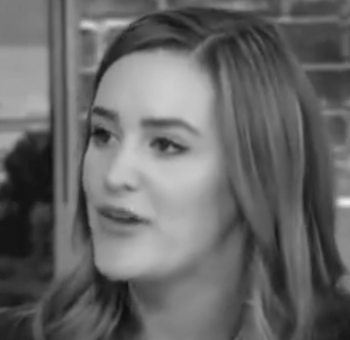Conservative lawyer gets retrial over alleged law school hiring discrimination
Manning’s initial lawsuit against the university went to trial but was dismissed. Now, the pro-life activist and outspoken conservative is getting a second chance.
Teresa Manning alleges that she was rejected as a candidate for an adjunct position at the University of Iowa College of Law in 2007 because of discriminatory hiring practices.
Conservative lawyer Teresa Manning, who previously accused the University of Iowa College of Law (UI) of refusing to hire her because of her political persuasions, will soon get a second chance to prove her case in federal court.
The jury selection process began Monday in Manning’s second trial against law school administrators. In 2009, Manning—formerly known as Teresa Wagner—filed a First Amendment lawsuit against the university alleging that administrators had discriminated against her over her conservative beliefs while she was being considered for an adjunct position in 2007.
At the time, Manning was one of three candidates interviewing for a full-time teaching gig at the law school in Iowa City from which she’d received her law degree.
Despite her track record of accomplishments as a trial attorney in Iowa and the author of a legal brief used in the 2002 U.S. Supreme Court case Stenberg v. Carhart, Manning was notified that UI had chosen to hire another candidate by the name of Matt Williamson.
According to the Wall Street Journal, Williamson was a “self-described “off the charts liberal” with one semester of law-school teaching experience, no legal publications and no experience practicing law.”
In the lawsuit that followed, Manning accused UI’s 50-person faculty—comprised of 46 registered Democrats and a single registered Republican—of not wanting a socially conservative woman on staff.
According to Manning, whose resume includes socially conservative organizations like the Family Research Council (FRC) and National Right to Life Committee, her leading adversary during the hiring process was Professor Randall Bezanson. While serving as a law clerk for Justice Harry Blackmun in 1973, Bezanson helped contribute to the Supreme Court’s decision in the landmark abortion rights case, Roe v. Wade.
“It violates the First Amendment for any public employer to discriminate against its employees either in a refusal to hire or in a termination on the basis of that employee’s political beliefs,” Manning said during an FRC lecture in March.
Although UI maintains that its decision to turn down Manning was based off of her poor performance on a presentation during the interview process, Manning’s lawyer has used an email to dispute those claims.
According to Newton Daily News, an associate dean at UI’s law school sent a “smoking gun” email to Carolyn Jones—former dean of the law school—expressing his concern that professors were overlooking Manning as a candidate “because they so despise her politics (and especially her activism about it).”
In the original trial, which took place in Oct. 2012, the jury was unable to reach a verdict or name Jones as solely responsible for discriminating against Manning. Judge Thomas Shields, who oversaw the initial trial, was later informed that although jurors had rejected Manning’s First Amendment claim, they were unable to dismiss her due-process and equal-protection claims. However, because Shields had already declared a mistrial, Jones was cleared and the case was flagged for procedural error.
The error in Manning’s previous trial led the U.S. Eighth Circuit Court of Appeals to approve her petition for a retrial last July. The latest trial is set to take place through June 30 in the U.S. District Court for the Southern District in Davenport and Manning is seeking compensatory damages for lost wages and emotional distress.
A spokesperson for UI’s law school recently told the Newton Daily News that the university “is ready to re-try the case and seek the same result.”
In anticipation of the Appeals Court’s ruling last July, Peter Berkowitz with the Wall Street Journal wrote that “hiring decisions should be based on candidates’ merits, including their ability to vigorously present in the classroom and criticize conservative as well as progressive views.”
“If the Eighth Circuit protects Teresa Wagner’s constitutional rights, the court will also bolster legal education in America by promoting its depoliticization,” Berkowitz wrote at the time.
Follow the author of this article on Twitter: @gabriellahope_

